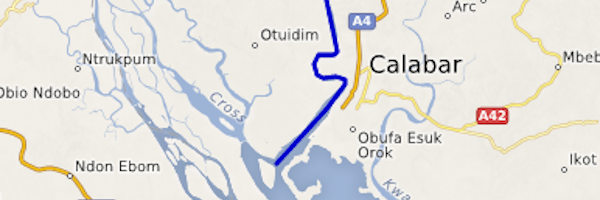Calabar IoT-based Smart Waste Project
Jump to navigation
Jump to search
| Calabar IoT-based Smart Waste Project | |
|---|---|

| |
 Calabar Network of Things | |
| Team Organizations | Fewes Green Ent University of Calabar Ministry of ICT Calabar Cross River State Calabar Ministry of Environment Calabar Nigizens Abuja Nigeria |
| Team Leaders | Bern Ewah |
| Participating Municipalities | Calabar Nigeria Ikom Nigeria Ogoja Nigeria Biase Nigeria |
| Status | Development |
| Document | None |
Description
Objectives
- To provide a clear roadmap on how to develop a smart waste management system
- Establish a smart integrated waste management system and linking same to a green and smart city establishment
Challenges
- Poor waste management system as waste is dumped in open dumpsite
- Dump sites are pron to leacheat and causing nuisance that can lead to an outbreak of an epidemic
Solutions
- Our solutions using the Food, Energy and Waste Efficiency System(FEWES) Technology is to approach waste management holistically from the point of generation to conversion of same into valuable products as, biofuels, industrial raw materials and organic fertilizers, while reducing the amount of Green Gas (CO2 and CH4 )released into the atmosphere
- Smart waste Management systems can increase efficiency and improve the quality of waste collection services leading to Operational cost reduction and improve environmental and health safety.
Major Requirements
- Carry out a feasibility studies and Do a EIA
- Systematic source separation and recycling of waste including a define roadmap for waste processing in line with the waste hierarchy (Avoid, Reduce, Reuse and Recycle waste)
- Installation of Smart Bins using Sensors Technology
- Billing systems ,Transportation and transfer stations
- Conversion of waste to useful products, Waste to Energy and avoiding Landfills
- Continuous awareness and training on smart waste management systems
Performance Targets
| Key Performance Indicators (KPIs) | Measurement Methods |
|---|---|
|
|
Standards, Replicability, Scalability, and Sustainability
- Benchmarks of current situation and after 1yr of implementing new methods
- ISO certification compliant
- The project will be developed on pilot base and small but effective
- It will be ICT based and cost effective
- It will involve all waste generators
- It will be tied to employment and rewarding schemes with broad based participation
Cybersecurity and Privacy
TBD
Impacts
This project will clean our environment, will create jobs, improve efficiency and reducing operational cost, bring in revenue from carbon credit, produce organic fertilizer thereby increasing food production, increase energy and reduce cost of electricity, promote alternative energy production
Demonstration/Deployment
We shall display products if possible otherwise photos will do, we shall have before and after implementation of smart waste management system